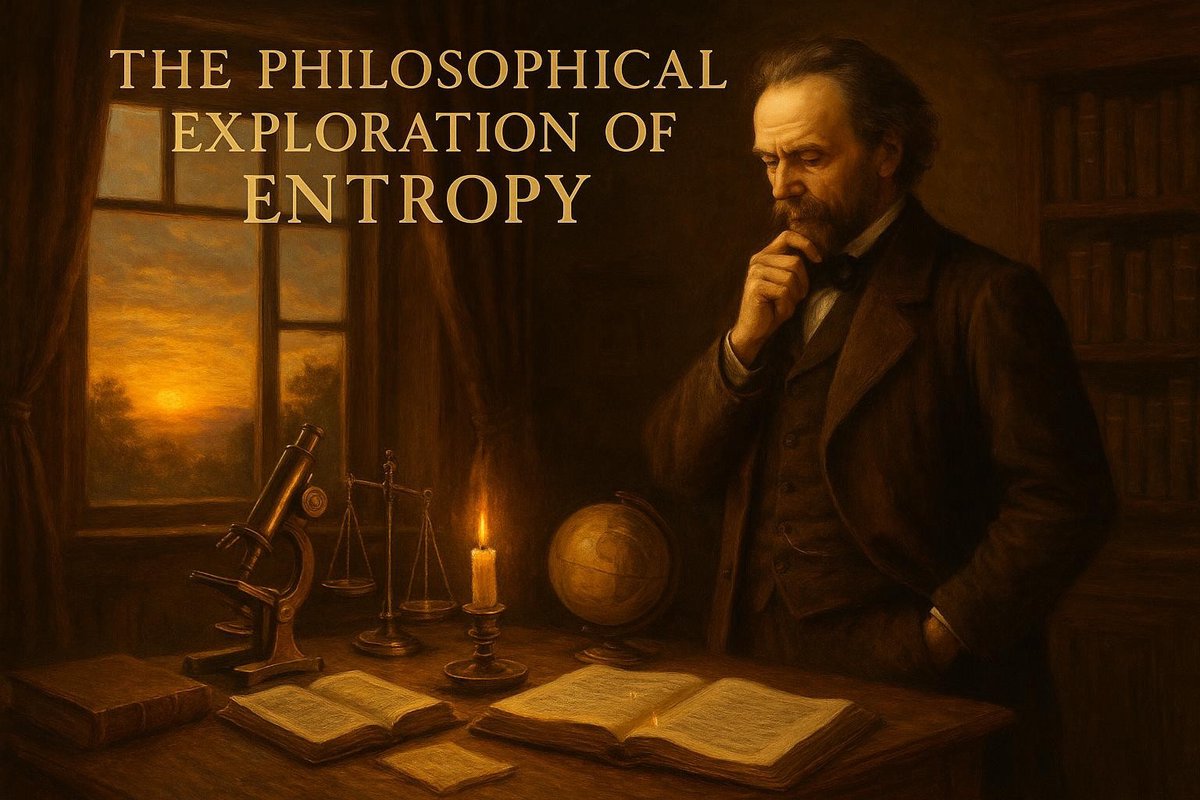
In the quiet moments before dawn, when the universe seems suspended in a delicate balance, one might ponder the invisible forces guiding the cosmos. Among these, entropy emerges as a profound concept, weaving through the fabric of science and philosophy alike. But what does entropy truly mean for the curious mind? How does it reshape our understanding of reality and our place within it?
The Problem Context
Before entropy entered the scientific lexicon, the universe was viewed as an intricate clockwork, an ordered system operating with mechanical precision. However, people often wondered: Why does chaos seem inevitable? Why do things fall apart, rather than stay intact?
Interestingly, as time goes on, the notion of change and decay becomes more apparent. Observers of nature noticed the gradual erosion of mountains, the inevitable rusting of iron, and the fading of once-vibrant colors.
- Entropy challenges the perception of a static universe, illuminating the transient nature of all things.
- It raises questions about the ultimate fate of the cosmos and our role within it.
These reflections set the stage for a deeper inquiry into the underlying principles governing these phenomena, leading to a pivotal moment in scientific history.
The Theoretical Breakthrough
In the 19th century, amidst the Industrial Revolution’s transformative energy, a breakthrough emerged. Scientists like Rudolf Clausius and Ludwig Boltzmann grappled with the mysteries of heat and energy transfer, laying the foundation for thermodynamics.
Clausius introduced the term ‘entropy,’ describing it as a measure of disorder. Many people believe this was a revolutionary step, offering a mathematical framework to explain the inevitable march towards chaos.
- Entropy is a lens through which the second law of thermodynamics is viewed, dictating that energy disperses and systems tend towards disorder.
- This principle not only governs physical systems but also serves as a metaphor for life’s unpredictability.
Such insights into the laws of thermodynamics prompted a reevaluation of the universe, prompting both awe and humility in the face of nature’s complexities.
Supporting Evidence Through the Ages
As evidence for entropy’s role in the natural world accumulated, its implications extended beyond the laboratory. Observations of thermodynamic processes, from melting ice to the combustion engine, reinforced its pervasive influence.
No wonder entropy became a central tenet in understanding both natural and technological phenomena. It is, of course, a key player in the evolution of stars and the lifecycle of galaxies.
- Consider the analogy of a sandcastle on the beach: over time, the structured grains succumb to the relentless waves, illustrating entropy at work.
- Similarly, the spread of dye in water exemplifies the inevitable journey towards equilibrium and disorder.
These examples underscore entropy’s role in shaping our universe, urging us to explore further and question our preconceived notions.
Modern Relevance: Entropy and Our Perspective
In contemporary times, the concept of entropy continues to captivate thinkers across disciplines. It challenges our understanding of time, order, and the ultimate destiny of the cosmos.
As we stand on the precipice of new discoveries, the philosophy of entropy invites us to ponder profound questions. How does it influence our perception of life’s fleeting nature? What does it reveal about our quest for meaning in an ever-changing world?
- Entropy urges us to embrace the impermanence of existence, fostering a sense of wonder and humility.
- It reminds us that within the chaos lies an intricate beauty, connecting us to the larger tapestry of the universe.
Through the lens of entropy, we glimpse the delicate dance of order and disorder, challenging us to find harmony within the apparent chaos.
In reflecting on entropy, we recognize its profound impact on both scientific inquiry and philosophical contemplation. It serves as a bridge between these realms, inviting us to explore the mysteries of existence with open minds and hearts.
Fuel Someone Else’s Curiosity
If this exploration of entropy has sparked a flicker of curiosity, consider sharing these insights with others. In doing so, you may inspire new dialogues and foster a deeper appreciation for the intricate dance between science and philosophy. Let us continue to question, to wonder, and to seek understanding in the ever-expanding realm of human knowledge.

Leave a Reply